PCR Film Plastic Recycled Fibers Traceability Polylactic Acid Circular Economy Car 25-11-2021 - Arhive
PCR Film Plastic Recycled Fibers Traceability Polylactic Acid Circular Economy Car
Crude Oil Prices Trend
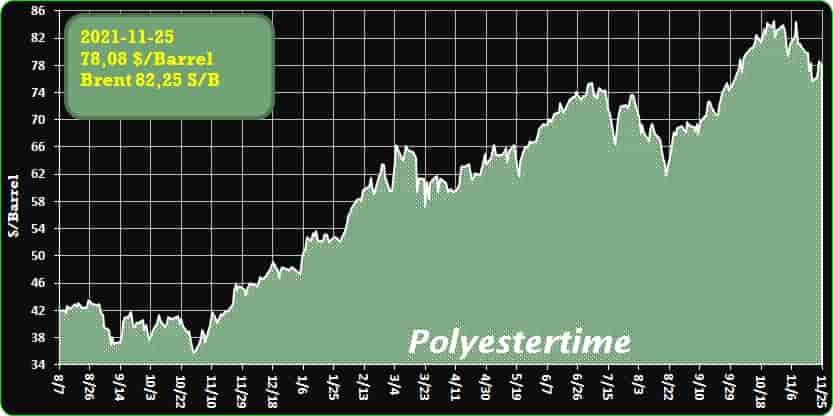
-Dow launches PCR shrink film for bottled water with Lotte
Dow and Lotte Chilsung Co. have collaborated on a new collation shrink film (CSF) for bottled water made from material containing 20% post-consumer recycled (PCR) content.
In partnership with recycling companies, Dow says that it takes plastic waste and transforms it into PCR resins, which are then incorporated into the core layer of the CSF. The company claims that the PCR CFS film gives a comparable performance to conventional options made with only virgin resins.
Lotte is the latest brand in the Asian Pacific to adopt Dow’s CSF containing PCR resins. According to Bambang Candra, Asia Pacific commercial vice president for Dow Packaging and Specialty Plastics: “We see momentum gathering as Asia Pacific consumer brands continue to adopt PCR or recyclable packaging options offered by Dow.
“This pushes the change we are trying to drive further down the value chain towards consumer behaviour and actions, while supporting waste collection and recycling infrastructure.”
The CFS will be used as secondary packaging for Lotte’s Icis 8.0 Eco bottled water, which has no additional plastic labels. Instead, Lotte’s brand name is extruded as part of its design, apparently earning the bottle recognition from Korea’s Ministry of Environment for being a “Sustainable Good Package”.
Mr. BH Han, professional researcher for packaging and design at Lotte, comments: “Lotte’s ambitious strategy to reduce our use of plastic is being enabled by materials science partners like Dow, who are helping us to reach our sustainability goals.
“Dow’s PCR collation shrink film helps us to further reduce our plastic use and improves the sustainability profile of our beverage products.”
Other products from Dow, including TF-BOPE-based solutions for orientated films, a PE-based alternative to BOPP and BOPET, are already commercially available and popular on the Asian Pacific market.
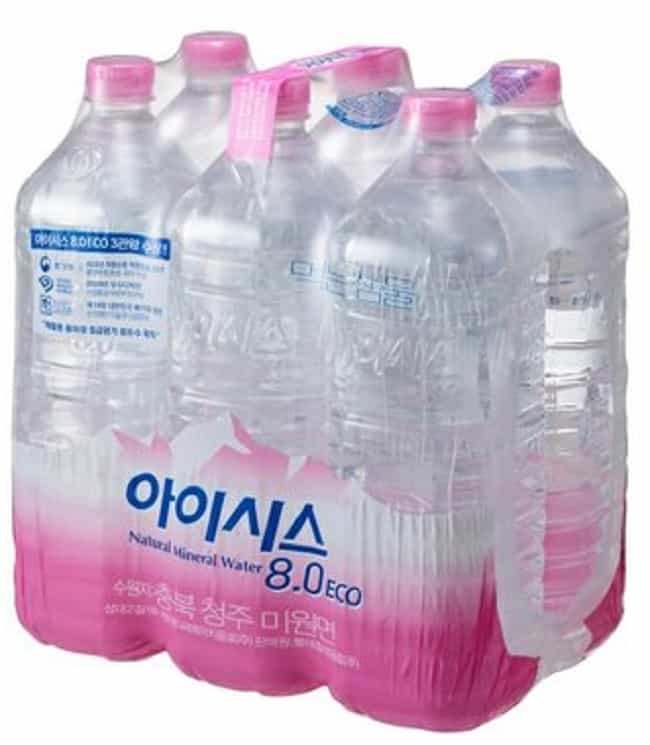
-Unifi Reaches Key Sustainability Milestone Ahead of Schedule
Company continues to see consumers, brands and retailers embrace the move towards more sustainable products PCR Film Plastic Recycled Fibers Traceability Polylactic Acid Circular Economy Car
Unifi, Inc. one of the world’s leading innovators in recycled and synthetic yarns, is celebrating a major sustainability milestone. The company has now transformed more than 30 billion post-consumer plastic bottles into its REPREVE recycled performance fibers that are used by hundreds of the world’s leading brands.
“Our brand and mill partners helped us achieve this ambitious goal,” said Unifi CEO Eddie Ingle. “By making the switch to sustainable by choosing to use REPREVE, we’ve been able to keep more than 30 billion plastic bottles out of landfills. We want to thank consumers for choosing to buy products—ranging from apparel to home furnishings to shoes—made with REPREVE. Together, we are working today for the good of tomorrow.”
Unifi began setting recycling goals in 2017 after hitting the 10 billion bottle milestone. The company pledged to transform 20 billion bottles by 2020 and 30 billion bottles by 2022. Company leaders are proud to have hit the 30 billion bottle milestone in November 2021.
To put this achievement into perspective:
When Unifi launched REPREVE, it was initially adopted by only two brands; now, more than 1,000 brands worldwide use the recycled performance fibers.
REPREVE Fiber sales are approaching 40% of Unifi’s total sales, with that number expected to continue to grow in the coming year.
30 billion bottles used to create REPREVE fiber, instead of the virgin equivalent, can save enough energy to power nearly 284,000 homes in the United States for one year.
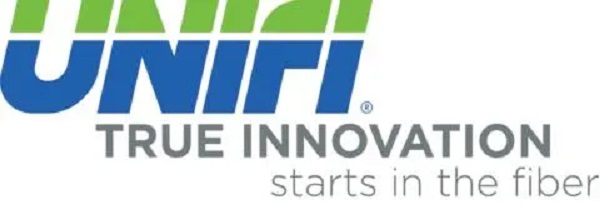
-Why Thailand is the Perfect Place to Invest in Polylactic Acid (PLA) Plastic
Thailand’s bioplastic manufacturing industry has grown exponentially in recent years, from 26.67 Kilo Tons per Annum (KTA) of bioplastic resin exported in 2007 to an estimated 156 KTA in 2019. This increase reflects increased international demand for bioplastics, which are plastic materials produced from biomass sources such as agricultural by-products.
As one of the most popular kinds of bioplastic, Polylactic acid (PLA) shares many physical characteristics with conventional plastics that are made from fossil-fuel based petrochemicals. The Thai Industry Ministry predicts that the value of PLA exports will increase to 2.7 billion Baht this year, making Thailand the world’s third largest exporter of this type of bioplastic. PCR Film Plastic Recycled Fibers Traceability Polylactic Acid Circular Economy Car
The success of Thailand’s bioplastics industry has already attracted significant international investment. In September 2019, Thailand saw the opening of the second-largest PLA bioplastics plant in the world – a joint venture between TotalEnergies, a French-led leader in oil and gas, and Amsterdam-based Corbion.
Many opportunities remain for market growth in bioplastics like PLA, due in large part to the wide availability of raw materials, as well as the range of government-backed incentives for bioplastic manufacturing. Investors can see excellent returns from this industry, provided they have a proper understanding of the market, and the incentives supporting bioplastics production in Thailand.
Environmental plastic
A highly versatile material, PLA is one of the most widely known types of bioplastics. Through industrial processes, PLA can be created from renewable feedstocks like sugarcane, corn, sugar beet, cassava, and other types of biomass.
While containing many of the physical properties that make petrochemical-based plastics so useful, PLA has the advantage of being biodegradable and being virtually carbon-neutral. PLA is also recyclable, and, unlike its fossil-fuel based counterparts, is much less toxic if burnt or dumped into the environment.
PLA is already recognized as a greener alternative to conventional plastic. Uses include PLA packaging, toys, organic waste bags, and especially 3D printing materials. PLA is also a valuable material for medical implants due to its biocompatibility – meaning that it is non-toxic and can be absorbed by the human body.
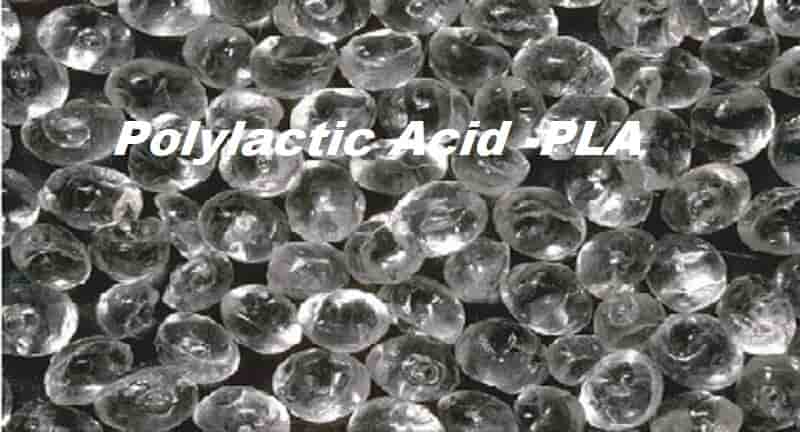
-What is plastics traceability in the recycling process?
In order to reach sustainability goals, plastics need to be traceable throughout the recycling process. For recycled plastics (like rPET) complex infrastructures and processes are required to maximise its potential, and our goal is to make sure not even the tiniest amount escapes. PCR Film Plastic Recycled Fibers Traceability Polylactic Acid Circular Economy Car
These processes have high demands in terms of quality, including demands of traceability. But do you really know what plastics traceability in the recycling process is? Let’s take a quick look at the main concepts.
PLASTIC RECYCLING METHODS AND TRACEABILITY
There are several ways to recycle plastic. Today, these are principally the following:
- Chemical recycling: This process breaks the plastic back down into molecules (pyrolysis), the smallest part of their structure. The resulting simple structures (monomers) allow us to start from scratch and form new polymers. This method is particularly used with materials that cannot be recycled mechanically, especially PET, polyamide (PA) and PS.
- Energy recovery: This process is great for types of plastic that cannot be recycled in other ways. They are used to obtain energy and it is estimated they could provide 8% of the energy needed for a country like Spain.
- Mechanical recycling: This is the most relevant process in terms of plastics traceability in recycling and the one we are going to look at in detail. In the mechanical process, plastic is recycled and processed it so it can be returned to the production chain. This contributes to the circular economy, which is essential for a sustainable production chain.
The circular economy is a way of producing goods that reduces waste to a maximum, sending as much of it as possible to be converted into raw materials. This means we can avoid using virgin plastic and close the circle to ensure materials have many useful lives.
SP Group has been working towards a circular economy that also involves our clients, and it is here where our Tray2Tray project fits in. We are actively involved in managing the packaging waste produced by our clients. The materials we supply are collected and reintroduced into our production process. However, this project would collapse without traceability.
PLASTICS TRACEABILITY IN THE RECYCLING PROCESS. WHY IS IT IMPORTANT?
By ensuring traceability in the plastics recycling process, we are guaranteeing that the plastic produced in the process has the desired quality. However, this is very difficult when we are handling large amounts of waste that might break down during the process. Nevertheless, technology seems to have found an answer to the problem.
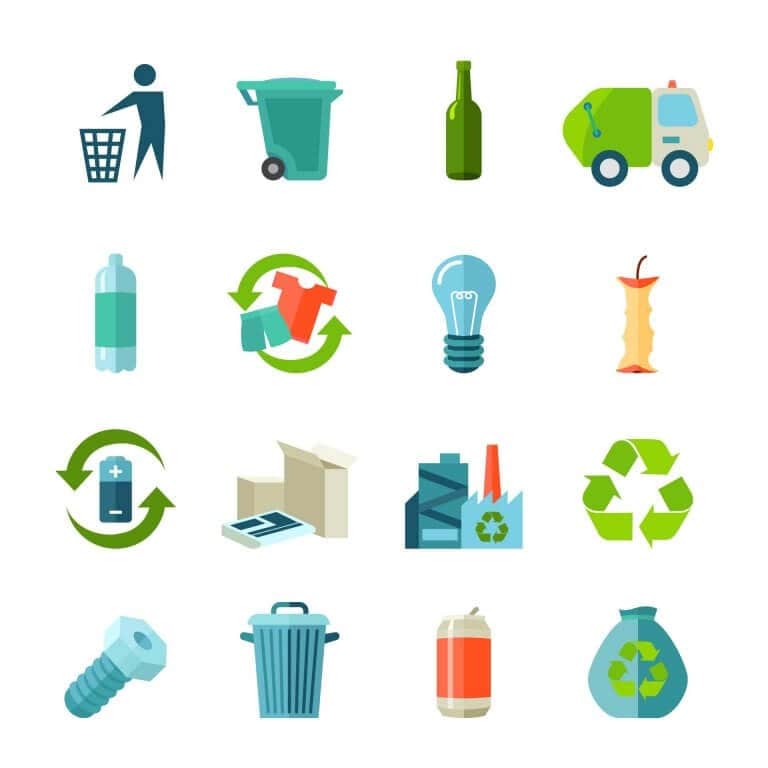
-Braskem and Cosan create partnership to leverage circular economy and carbon neutrality
Brazilian polyolefins producer Braskem and Cosan, a conglomerate producer of bioethanol, sugar and energy, have created a partnership to carry out initiatives in favor of a more sustainable future for Brazil, as per Braskem’s press release.
The companies assumed a joint commitment to leveraging the circular economy and carbon neutrality – essential for the sustainability of the entire production and consumption cycle – through various actions that effectively contribute to the agenda against climate change PCR Film Plastic Recycled Fibers Traceability Polylactic Acid Circular Economy Car
Braskem and Cosan will work together with its companies Raizen, Compass, Comgas, Moove and Rumo to lead initiatives to reduce carbon emissions, and reduce energy consumption and the use of fossil fuels.
The partnership will leverage Braskem’s green plastic production chain, where it uses sugarcane to make plastic to replace fossil fuels.
One front of the partnership that will start immediately, is to give new meaning to the destination of part of the waste generated in street races sponsored by Cosan. The two companies are carrying out a project to collect, at sporting events, plastic cups that will be recycled and turned into trash cans that will be donated to public schools, generating a positive social impact. The first action has already taken place and 850 kg of polypropylene (PP) cups were collected, a quantity that will be transformed into more than 500 garbage cans.
In the last five years, Cosan group has helped Braskem meet its sustainability goals by reducing carbon dioxide (CO2) by 2.4m tonnes through the supply of ethanol from its joint venture, Raizen. Over the next five years, Braskem expects to reduce its emissions an additional 3m tonnes of CO2.
As MRC reported earlier, in April 2021, Cyclyx International, a consortium-based feedstock management company with a mission to increase the recyclability of plastic from 10% to 90%, and Braskem, the largest polyolefins producer in the Americas and leading producer of biopolymers in the world, announced that Braskem had joined Cyclyx as a member.
As a member of the Cyclyx consortium, Braskem will have access to the Cyclyx platform which includes an integrated set of innovations including chemical characterization of plastics and predictive modelling of feedstock sources to product pathways, custom feedstock recipes, and customized supply chains. These innovations aim to deliver waste plastic feedstock appropriate for all existing and new mechanical and advanced recycling pathways.
According to MRC’s ScanPlast report, Russia’s estimated PE consumption totalled 1,868,160 tonnes in the first nine months of 2021, up by 18% year on year. Shipments of all grades of ethylene polymers increased. At the same time, PP shipments to the Russian market were 1,138,510 tonnes in the first nine months of 2021, up by 30% year on year. Supply of propylene homopolymer (homopolymer PP) and block-copolymers of propylene (PP block copolymers) increased, whereas supply of injection moulding PP random copolymers decreased significantly.
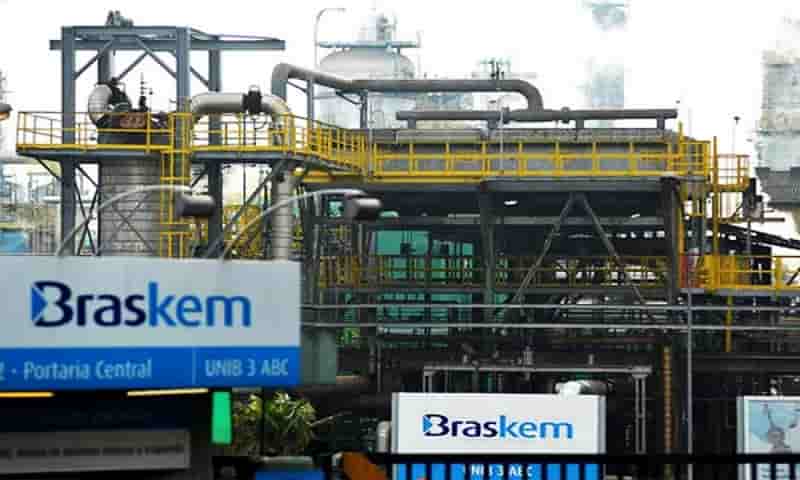
-Grupo Antolin develops the first car headliner substrate made from plastic waste and used tires
The polyurethane (PU) headliner’s substrate is manufactured with a Wet PU process that involves materials made from urban & post-consumer plastic waste and end of life tires.
Towards more sustainable vehicle overheads, Grupo Antolin focuses on different methods and technologies to recycle interior trim parts.
Grupo Antolin presents the first headliner substrate produced by thermoforming a PU foam with materials made from urban & post-consumer plastic waste and end of life tires. Working with recycled materials is a natural step in the company’s commitment to develop a sustainable business. The aim is to reduce waste and energy consumption during manufacturing and to meet the demand for eco-friendly interiors, something increasingly valued in car buyers’ choices.
The headliner part looks as a standard headliner and performs exactly the same (sustainability surge comes without any reduction in the physical properties of the headliner). This accomplishment has been possible thanks to a material’s manufacturing process developed by the partner BASF (by means of chemical recycling) that Antolin has validated and introduced in a fully electric European premium car that has just been launched to the market. Approximately 50% of the headliner weight is recycled. In this particular project, 100% of the textile, 70% of the core foam, and 70% of the plastic sunroof reinforcement frame have been obtained from residues that couldn’t be recycled in any other way and would have been, ultimately, disposed in landfills or, what is worse, in natural habitats, like oceans.
“This project is a step towards a more sustainable car interior trim and a huge leap for the Wet PU technology. A technology that has demonstrated to be the most competitive in terms of cost and quality, fulfilling at the same time the most demanding specifications from our clients”, says Enrique Fernandez, Advanced Engineering Director, Overhead Systems BU. PCR Film Plastic Recycled Fibers Traceability Polylactic Acid Circular Economy Car
“We are going one step further by deploying the strategy among our clients worldwide. Our next project featuring recycled core PU foam will be unveiled in 2022 and it’ll be manufactured using renewable electricity. Our commitment is to reduce the generation of waste and emissions in all our production processes”, highlights Javier Blanco, Grupo Antolin’s Sustainability Director. These types of solutions are an example of the company’s technological commitment to help its customers to develop more sustainable vehicles by reducing waste, weight and emissions.
This action is part of the Sustainability Master Plan that has been designed with the United Nations Sustainable Development Goals’ 2030 Agenda as a roadmap.
Mechanical recycling
As the leading overhead systems supplier, Grupo Antolin focuses on different methods and technologies to recycle interior trim parts as part of its objective to make a positive contribution to society and reduce carbon print. In this sense, mechanical recycling is another well-known procedure that helps to reintegrate plastic products into the production cycle. This is a mature technology that has founded many applications and it’s well integrated in the industrial processes. This type of recycling is currently being used with thermoplastic structures. With thermoset materials, mechanical recycling is not possible in many cases, though.
Antolin has developed technologies that allow to process a wider quality range of recycled plastic sources that are transformed into automotive parts using a process called Novaform. On the other hand, it has also introduced in serial production in Europe a method to recycle the thermoset run-offs and technical scrap from headliners and transform them into construction boards. These boards are currently being used in Europe, Africa, and South America. The product, branded Coretech, is capable of transforming a composite thermoset product (that couldn’t be recycled in other ways) into a board with outstanding insulation and endurance properties.

-Bio Based PET Market to Grow at a Strong CAGR of 21.3% By 2030
Bio-Based Pet Market 2030
The global bio-based pet market is estimated to grow at a CAGR of 21.3% during the forecast period of 2022-2030. Bio-based polymers in the last decade have turned out to be a versatile and dynamic field growing from initial stages (research level) to long-term proven products such as nylon or cellulose. Cost, product significance with respect to sustainability, crude oil prices, consumer adoption, federal policies, and new manufacturing technology have contributed in the last decade, to the development of the bio-based polymers market across the globe. The production of bio-based polymers is carried out through biochemical transformation (for example, sugars to succinic acid) or by a chemical reaction process (for example, hydrolysis of lipids into glycerol and fatty acids).
Bio-based PET is categorized under commodity plastics. Bottling and packaging are the major application of bio-based PET in 2020. Bottling application of bio-based PET accounted for over 19.9% of the total market in 2020. Rising beverage consumption in the Asia Pacific and Latin America, government initiatives to drive green packaging, has aided bio-based PET market growth in bottling in the Asia Pacific and Latin America. The growing beverage market is the main factor aiding bio PET bottling segment growth for the forecast period. These bottles are largely used in rigid packaging of soft drinks, alcoholic beverages, cosmetics and pharmaceuticals, mineral water packaging by the companies such as Heinz, Coca-Cola, PepsiCo, Dasani, and others. The rigid packaging market contributes to about 60% of the total packaging market due to the high consumption of bio-based PET bottles. For manufacturing bio PET bottles, PET of grade 30 is utilized in general. PCR Film Plastic Recycled Fibers Traceability Polylactic Acid Circular Economy Car
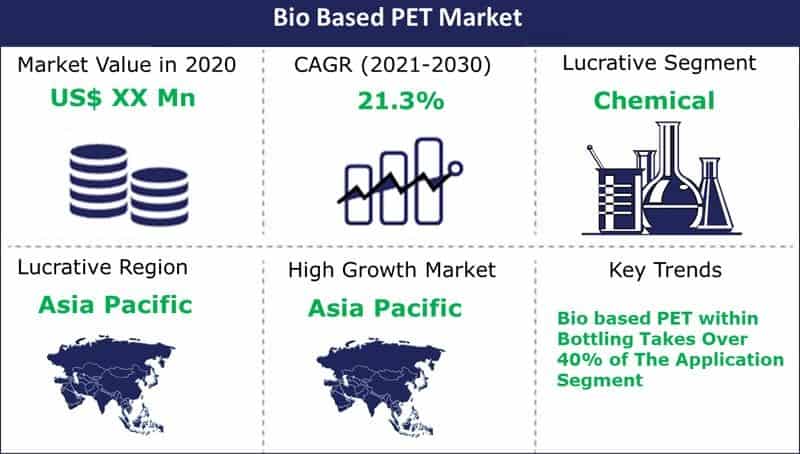
Stora Enso continues to develop the Trayforma range further and introduces a new solution for conventionally heated food packaging applications, featuring less than 10% PET plastic. Trayforma is a wood fibre-based material for ready meals packaging, enabling brand owners and retailers to switch from fully fossil-based materials to renewables.
The new Trayforma PET34 material continues to offer core properties such as food protection and heat resistance but has a significantly reduced amount of fossil-based barrier materials. When heating food in conventional oven, board materials need a PET coating to provide heat resistance and protect food. Meeting the threshold of 10% PET plastic will be an important step in producing trays made of Trayforma a better fit for fiber-based packaging recycling streams, and for achieving recyclable labelling in markets such as the UK. PCR Film Plastic Recycled Fibers Traceability Polylactic Acid Circular Economy Car
“We believe Trayforma products will have many future applications because they are low-carbon and help brand owners reduce their carbon footprint and use of fossil-materials, offering these benefits to consumers. Thanks to its renewable origin in wood fiber and its optimised barrier options, Trayforma range offers the right performance and several alternatives for the ready meals category, now also better fit for recycling,” says Tuomas Puonti, VP, Head of Business Line LPB Fresh & FSB from Stora Enso.
Earlier this year, Stora Enso introduced Trayforma PP – a material suitable for heating in microwave ovens — based on material containing up to 95% of wood fibers. For conventional ovens where PET coating is still needed, the reduction to 34gsm is a significant improvement and can still withstand temperatures up to 220 °C.
Trayforma is now also available in 420gsm for producing larger and sturdier microwave and conventional oven trays. In addition to Trayforma PET, Trayforma Bio and Trayforma PP will also be available in a 420gsm option.
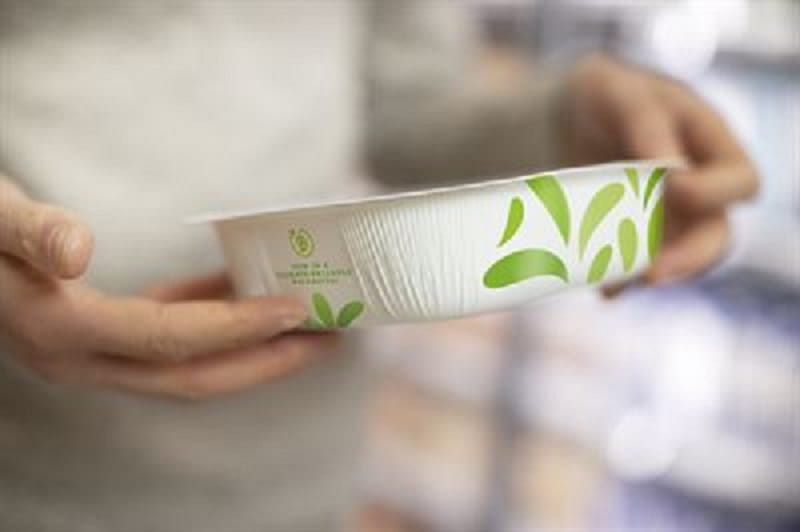
PCR Film Plastic Recycled Fibers Traceability Polylactic Acid Circular Economy Car
